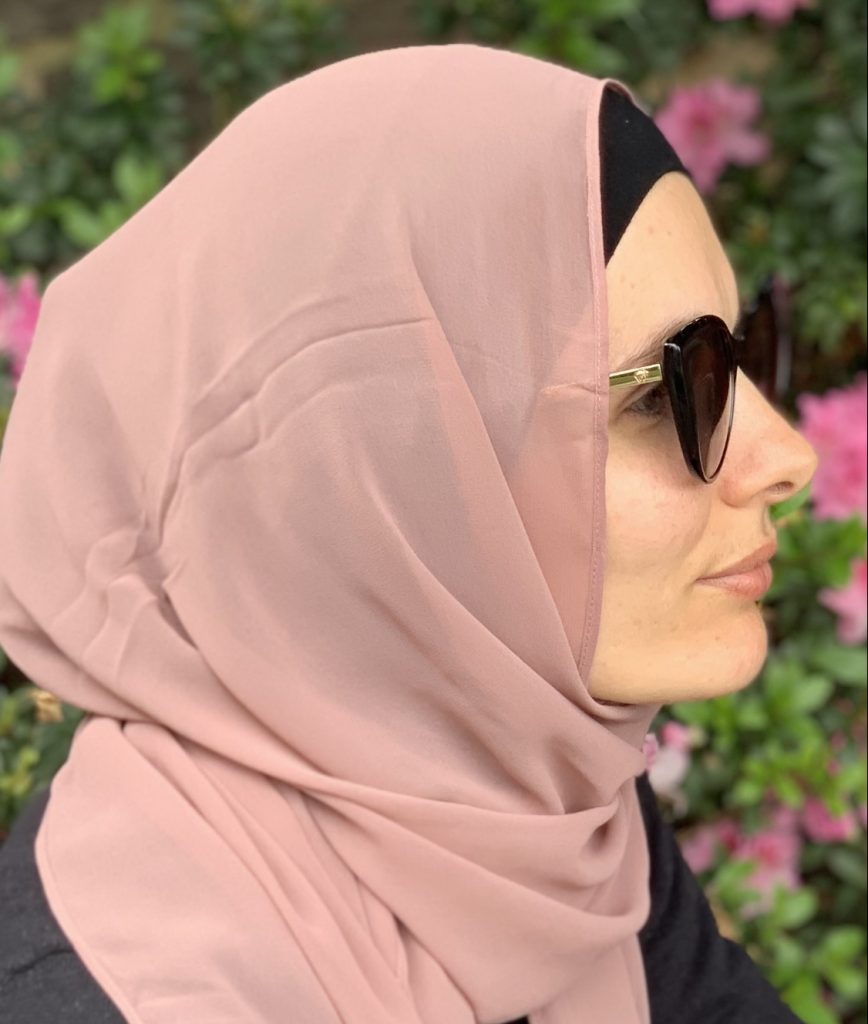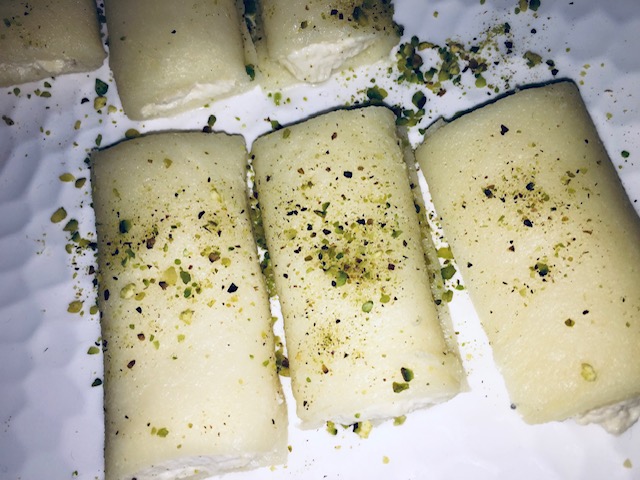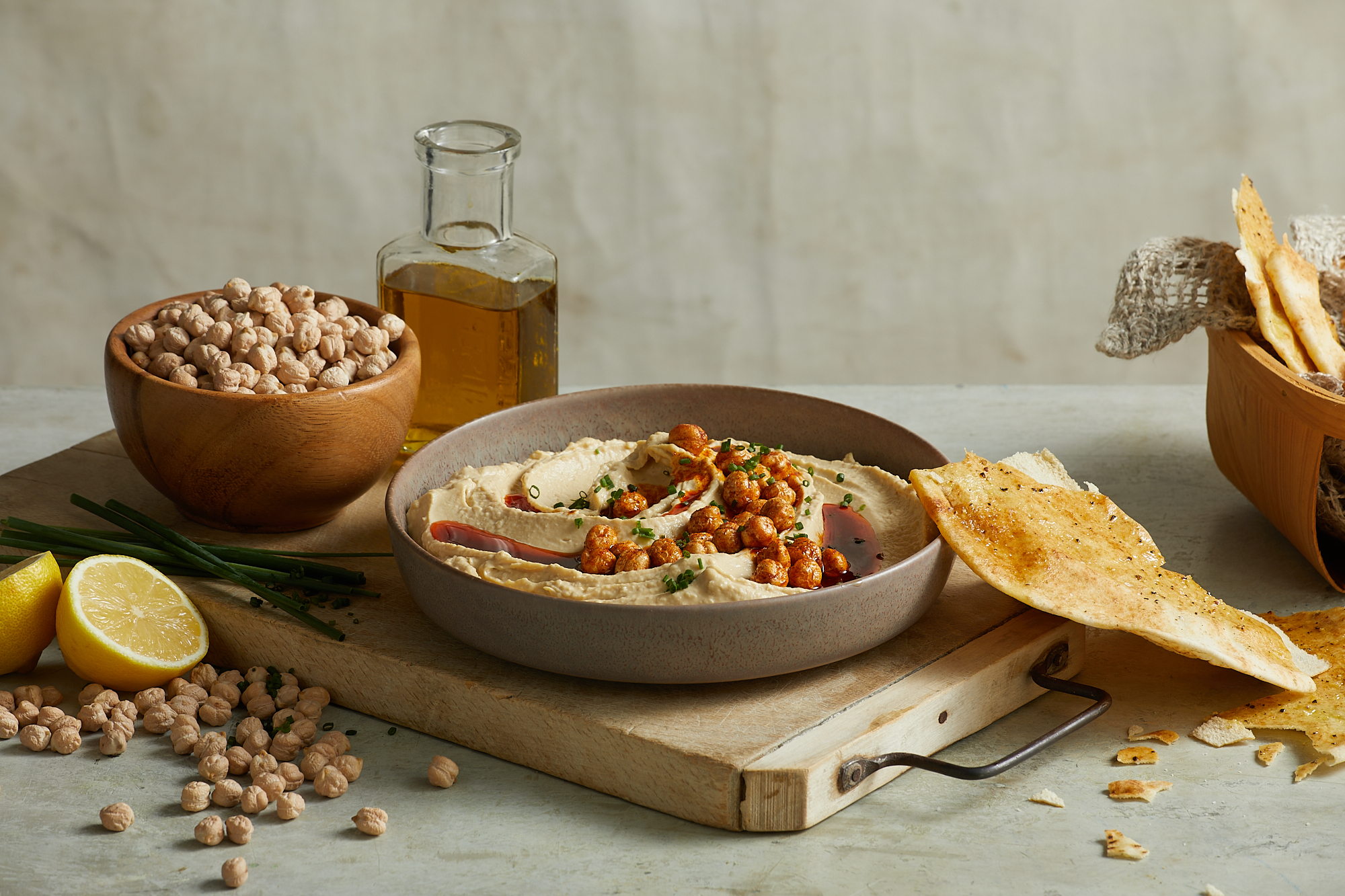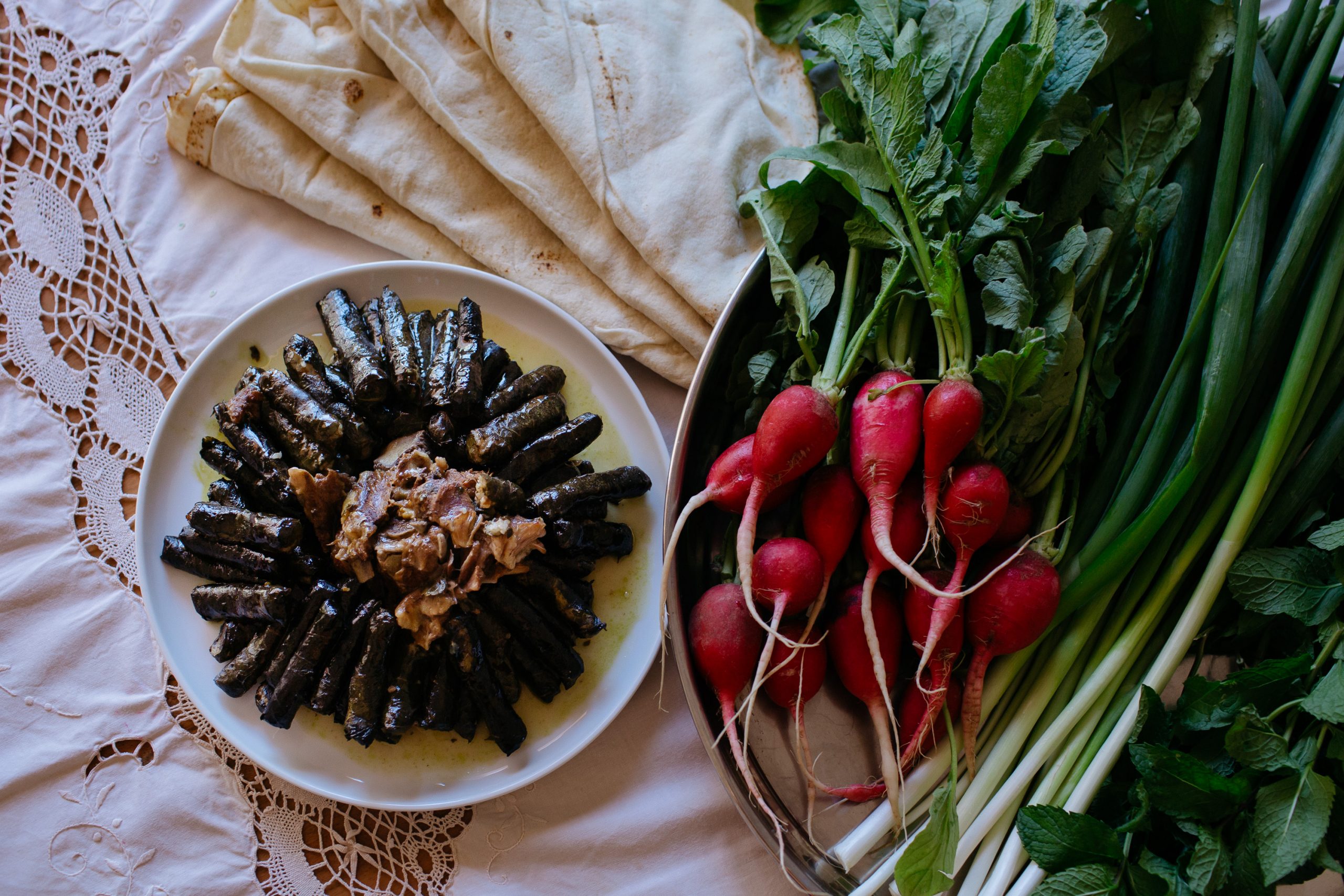Layelle’s Halawet Al Jibn
 Lebanon
Lebanon 
Ramadan has by far always been my favourite month of the year.
I was born and raised in Australia by my Lebanese parents. Mum’s family was actually one of the first families of Lebanese migrants to come to Australia in the 1950s. Her parents were originally from Tripoli, Lebanon’s second largest city and once a thriving port.
My maternal grandfather was a dedicated and noble family man who decided to make the move to Australia for the chance of a better life for his wife and children. One of his dear friends had recently moved here and encouraged him to do the same. He was a tailor by trade but when he arrived here, he did any job needed to make ends meet before he could continue his own profession again. Oddly, he didn’t settle near his friend – Mum says he loved exploring and doing his own thing.
My mum grew up in a little town called Tara in the Western Downs region of Queensland. Her family was the only Lebanese family in the town, but with their fair skin, blue eyes and friendly laid-back personalities, they fitted into the tight-knit community quite well. Their only barrier was the verbal language, speaking English, but with the help of tolerant and welcoming locals they learnt quickly.
There were no Middle Eastern grocers and my grandmother would make do with what was available to make both traditional and non-traditional meals for the family. Mum has told me about how the Lebanese community began to grow in Sydney and how they would take short holidays down there. Her father would take them to a Lebanese sweet shop near Newtown and they would indulge in Halawet Al Jibn, which was my grandfather’s favourite dessert. It’s a passion I inherited from him.
My mother is truly the person I most admire and most respect in this world. Ramadan evenings will never be forgotten because of her.
As I was growing up, she would spend most of her day either taking care of her elderly and ill mother-in-law or taking my brother to the hospital for his dialysis and all sorts of medical appointments. Yet she still managed to devote her life graciously to raising six of us – three boys and three girls – based on the best values and morals taught by the examples from our Prophet.
Mum was introduced to my father when she went back to Lebanon with her dad for a short holiday. My dad was one of nine and his family were from a region in the north of Lebanon called Al-Koura. After Mum and Dad married, they decided they would like to live there. And for the first nine years of their marriage, they did. My three eldest siblings, Shadi, Ronia and Wassim were born there. It was only when Wassim fell ill that they needed to make the move to Australia so that he could get immediate medical intervention.
Mum’s family had moved to Sydney, and so when Mum came back with Dad they settled in Sydney too and raised us there. Some years later Dad’s mum moved here too.
Nadia, Najib and I were all born in South Western Sydney. We were a tight-knit family and even though we have all begun our own intercultural families and are now residing all around the world, we still gather together as often as possible, and reminisce about our fond memories together.
My eldest brother Shadi married a Filipino. Najib married a half-Malay, half-Welsh girl who he met through a family friend. My eldest sister, Ronia, is married to a Syrian and they live in Saudi Arabia. The rest of us married Lebanese-Australians. I am the youngest and my sister Nadia and I are the only ones left in Australia. My brother Wassim lived in Australia too but he sadly passed away in 2015 from kidney failure.
I have a close relationship with both my parents and am so lucky they live close-by. My mother is still always there for me and for my children too. It was because of her continuous support, encouragement and assistance that I was able to complete my Masters degree in teaching with two young children – one was a newborn at the time.
Despite all the challenges that Mum endured, she still somehow miraculously managed to put home-cooked meals on the table, host Ramadan dinners and quite often whip up my much-loved cheese dessert, Halawet al Jibn.
And that’s where I come in! I have clear memories of standing to the side and watching in awe as Mum stretched and poked at the melting cheese, up and down, quickly yet gently. Then she would tip it out onto our long bench drizzled with Atar, which is basically a sugar syrup infused with orange blossom and rose flowers, and began to roll. She would have to roll quickly, otherwise it would harden.
These delectable sweet cheese strips, or rolls filled with clotted cream, are delicate and definitely a melt-in-the-mouth type of dessert. They hold so many dear moments for me as a child, especially during Ramadan, when mum would make Halawet al Jibn after a long and tiring day.
I now carry on this tradition and make it for my own family. I turn my head around as I am mixing the pot and notice my own girls watching, eyes wide open, their attention completely fixated on what I am making.
Ramadan is a time to get in touch with your spirituality; the month of reflection, giving and uniting. Ramadan teaches us that food is something very special, and that it is much more than just for sustenance.
Our families gather to eat together, to socialise, to celebrate and to gain rewards from feeding others. And as we gather, we pass along recipes and food traditions to the next generation. Food is part of our cultural identities and one of the ties that bind us together. So, whether we all consciously think about it or not, our family food traditions are part of our family history.
Blessings to all those hands that cook and produce meals and desserts for their families during this holy month!
Layelle Ayoubi
May 2021
Instagram: @L.A_oils
Share this story

Prepare the Atar syrup: place sugar and water in a small saucepan and bring to the boil. Allow the syrup to boil 2-3 minutes without stirring. Add the lemon juice and continue boiling for 10 minutes until it is a light, syrupy consistency that coats the back of a spoon. Remove from heat and stir in the orange blossom and rose waters. Set aside to cool.
Cut the cheese into small pieces, place in a bowl and cover with hot water. Set aside.
Pour your Atar over a large clean working bench or table, in preparation for the cheese to be rolled over and soak in the syrup.
Pour water and sugar into a large pot and place on medium heat. Stir until it begins to bubble.
Drain the cheese and then add to the pot. Allow the cheese to melt slightly. Poke and slightly lift with wooden spoon to ensure it is melting but still thick and stretchy.
When the cheese is half melted, add in the semolina and stir it into the cheese. Work quickly.
Continue to stir and ensure that the semolina has been mixed through well and that the cheese is melted and stretchy.
Add in the orange blossom and rose water. Stir through.
Once everything is nicely stirred through, put stove top on a low heat and slowly stretch out your cheese with your spoon. Scoop and lift up and allow to fall back into the pot. Continue until you notice it starting to bubble.
Immediately take off heat and pour the cheese out onto your workbench, that that has the atar spread on it. Use a rolling pin to stretch and roll out.
Start separating the cheese into small pieces or alternatively cut into squares and put ashta in the middle and roll up.
Top with fresh Ashta and crushed Pistachios to serve.




